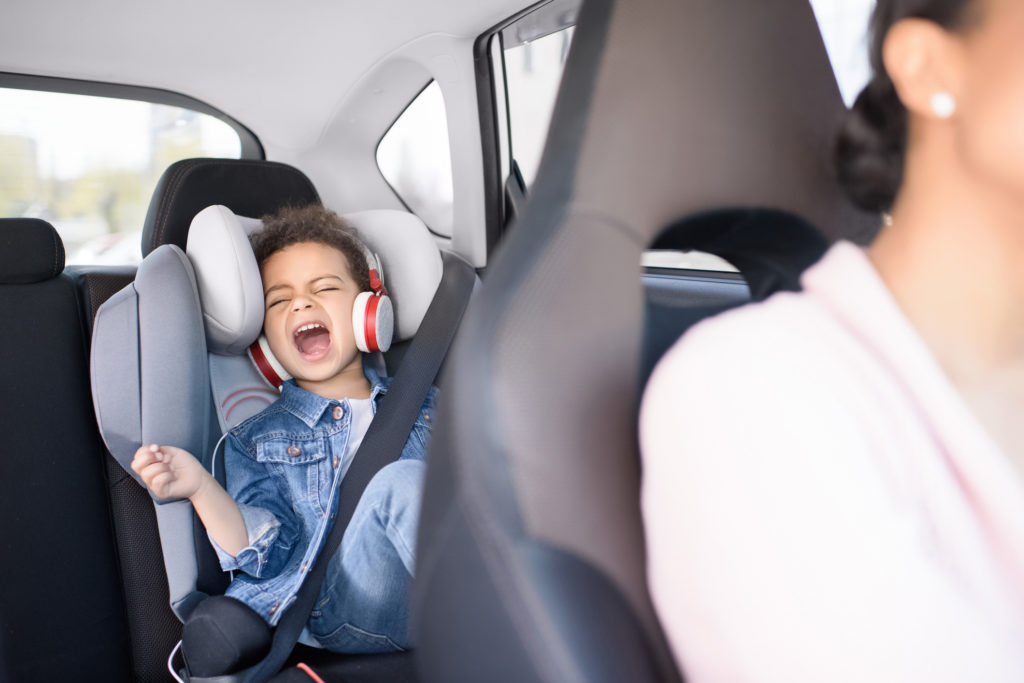Across the country, families will be hitting the roads for holiday visits with relatives and warm weather vacations. In fact, nearly 51 million Americans traveled 50 miles or more last week for Thanksgiving, according to AAA. For most, traveling in cars, planes and trains are a mild inconvenience of traffic jams and bad airport food. But for parents traveling with children in care, these vacations can turn into nightmare full of screaming kids without proper planning.

Traveling with children can be difficult because travel takes them away from everything they know and feel comfortable with and exposes them to an entirely new world. For foster children, whose routine has already been completely uprooted due to being removed from their homes, traveling can be extremely stressful and emotionally draining.
The temptation for many foster parents is to stay close to home to avoid adverse and unpredictable reactions, as well as the possibility of meltdowns in public places. But sometimes traveling is unavoidable, and the truth is, a child with anxiety, autism or any other hurdle is still a kid who wants to be part of the family vacation.
That’s why Foster and Adoptive Family Services (FAFS) offers the “Traveling with Challenging Children” webinar. This popular course, offered for free throughout the year to licensed resource parents in New Jersey, focuses on aiding foster parents as they attempt to plan a trip with the children in their care.
“The reason why I created it is that I felt that vacation trips are positive experiences that a child in care should have the opportunity to share in, especially when Division of Child Protection and Permanency (CP&P) strongly encourages taking children on family vacations,” FAFS Trainer/Spanish Translator Elizabeth Taylor said. “It helps children know that they are a true part of the family and enhances the bonding process.”
The course focuses on getting parents prepared by offering tips for dealing with long car rides and air travel, as well as sharing safety precautions. For licensed resource parents in New Jersey, the course teaches parents the requirements for traveling set forth by CP&P.
For foster children, learning to be flexible after a foster parent has spent so much time establishing a routine can be one of the hardest parts of traveling. That’s why this course urges parents to make the vacation schedule as clear as possible ahead of time. One suggestion putting up a calendar with the departure date marked and having the child check off every day leading up to it. This will help the child mentally prepare for the trip.
Aside from practical travel advice, the webinar also delves into what parents can do to keep their foster kids occupied during long road trips. Since 51 million Americans took to the road for the Thanksgiving holiday, being prepared for hours in the car with your children is essential.
FAFS suggests building a “Backpack of Surprise” full of snacks and age-appropriate inexpensive toys. The key is that the children aren’t allowed to look in the backpack and instead, every hour, you can dole out one “surprise” to keep them occupied. This is one of several suggested ways to keep kids busy during a long drive.
The course also emphasizes the importance of creating an emergency plan ahead of time. Make sure your child knows your first and last name (and that of any other caregiver), cell number, address and, if you are traveling, where you are staying. In instances where the vacation is to an amusement park, it’s suggested that the parent show the child a map ahead of time in order to help establish areas where he or she can find help.
The key to traveling with children in care, according to the webinar, is planning ahead of time to make sure the child feels safe and secure.
To learn about your state’s requirements for traveling with children in care, click here.
If you’re a licensed resource parent and New Jersey and would like to take this course, click here.
